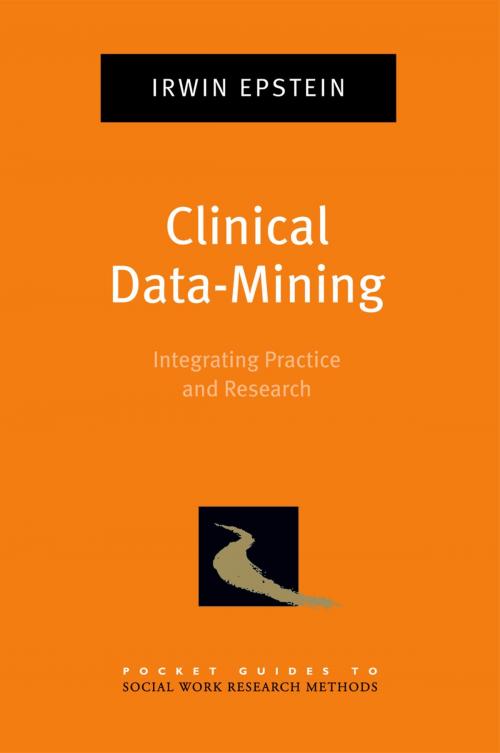Clinical Data-Mining
Integrating Practice and Research
Nonfiction, Social & Cultural Studies, Social Science, Social Work| Author: | Irwin Epstein | ISBN: | 9780190450557 |
| Publisher: | Oxford University Press | Publication: | November 2, 2009 |
| Imprint: | Oxford University Press | Language: | English |
| Author: | Irwin Epstein |
| ISBN: | 9780190450557 |
| Publisher: | Oxford University Press |
| Publication: | November 2, 2009 |
| Imprint: | Oxford University Press |
| Language: | English |
Clinical Data-Mining (CDM) involves the conceptualization, extraction, analysis, and interpretation of available clinical data for practice knowledge-building, clinical decision-making and practitioner reflection. Depending upon the type of data mined, CDM can be qualitative or quantitative; it is generally retrospective, but may be meaningfully combined with original data collection. Any research method that relies on the contents of case records or information systems data inevitably has limitations, but with proper safeguards these can be minimized. Among CDM's strengths however, are that it is unobtrusive, inexpensive, presents little risk to research subjects, and is ethically compatible with practitioner value commitments. When conducted by practitioners, CDM yields conceptual as well as data-driven insight into their own practice- and program-generated questions. This pocket guide, from a seasoned practice-based researcher, covers all the basics of conducting practitioner-initiated CDM studies or CDM doctoral dissertations, drawing extensively on published CDM studies and completed CDM dissertations from multiple social work settings in the United States, Australia, Israel, Hong Kong and the United Kingdom. In addition, it describes consulting principles for researchers interested in forging collaborative university-agency CDM partnerships, making it a practical tool for novice practitioner-researchers and veteran academic-researchers alike. As such, this book is an exceptional guide both for professionals conducting practice-based research as well as for social work faculty seeking an evidence-informed approach to practice-research integration.
Clinical Data-Mining (CDM) involves the conceptualization, extraction, analysis, and interpretation of available clinical data for practice knowledge-building, clinical decision-making and practitioner reflection. Depending upon the type of data mined, CDM can be qualitative or quantitative; it is generally retrospective, but may be meaningfully combined with original data collection. Any research method that relies on the contents of case records or information systems data inevitably has limitations, but with proper safeguards these can be minimized. Among CDM's strengths however, are that it is unobtrusive, inexpensive, presents little risk to research subjects, and is ethically compatible with practitioner value commitments. When conducted by practitioners, CDM yields conceptual as well as data-driven insight into their own practice- and program-generated questions. This pocket guide, from a seasoned practice-based researcher, covers all the basics of conducting practitioner-initiated CDM studies or CDM doctoral dissertations, drawing extensively on published CDM studies and completed CDM dissertations from multiple social work settings in the United States, Australia, Israel, Hong Kong and the United Kingdom. In addition, it describes consulting principles for researchers interested in forging collaborative university-agency CDM partnerships, making it a practical tool for novice practitioner-researchers and veteran academic-researchers alike. As such, this book is an exceptional guide both for professionals conducting practice-based research as well as for social work faculty seeking an evidence-informed approach to practice-research integration.















